Anti-Asian Hate Resource Hub
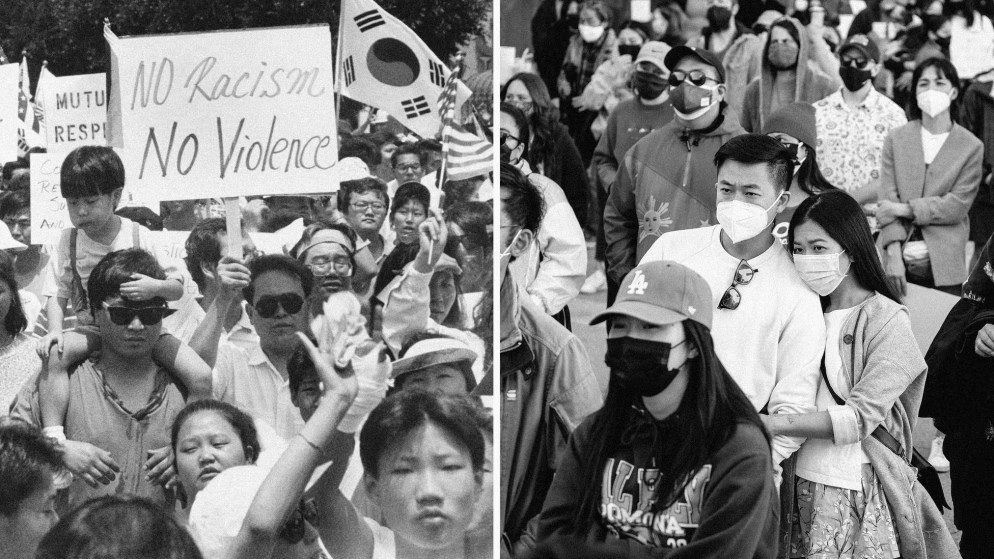
During the Covid-19 pandemic, we witnessed an alarming uptick in hateful and violent acts toward Asian Americans. Anti-Asian racism and violence, particularly against Southeast Asian American (SEAA) communities, has long existed in US history — from the trauma of the war and bombings of Vietnam, Laos, and Cambodia, to the ongoing detention and deportation of our friends and family members.
SEARAC’s Anti-Asian Hate Resource Hub is a space for community members and allies to learn about, recognize, and fight anti-Asian hate in all of its forms.
Table of Contents
Articles
Organizational Statements
SEAA-led Community Conversations
In-language Resources
Lessons from History
Take Action
Articles
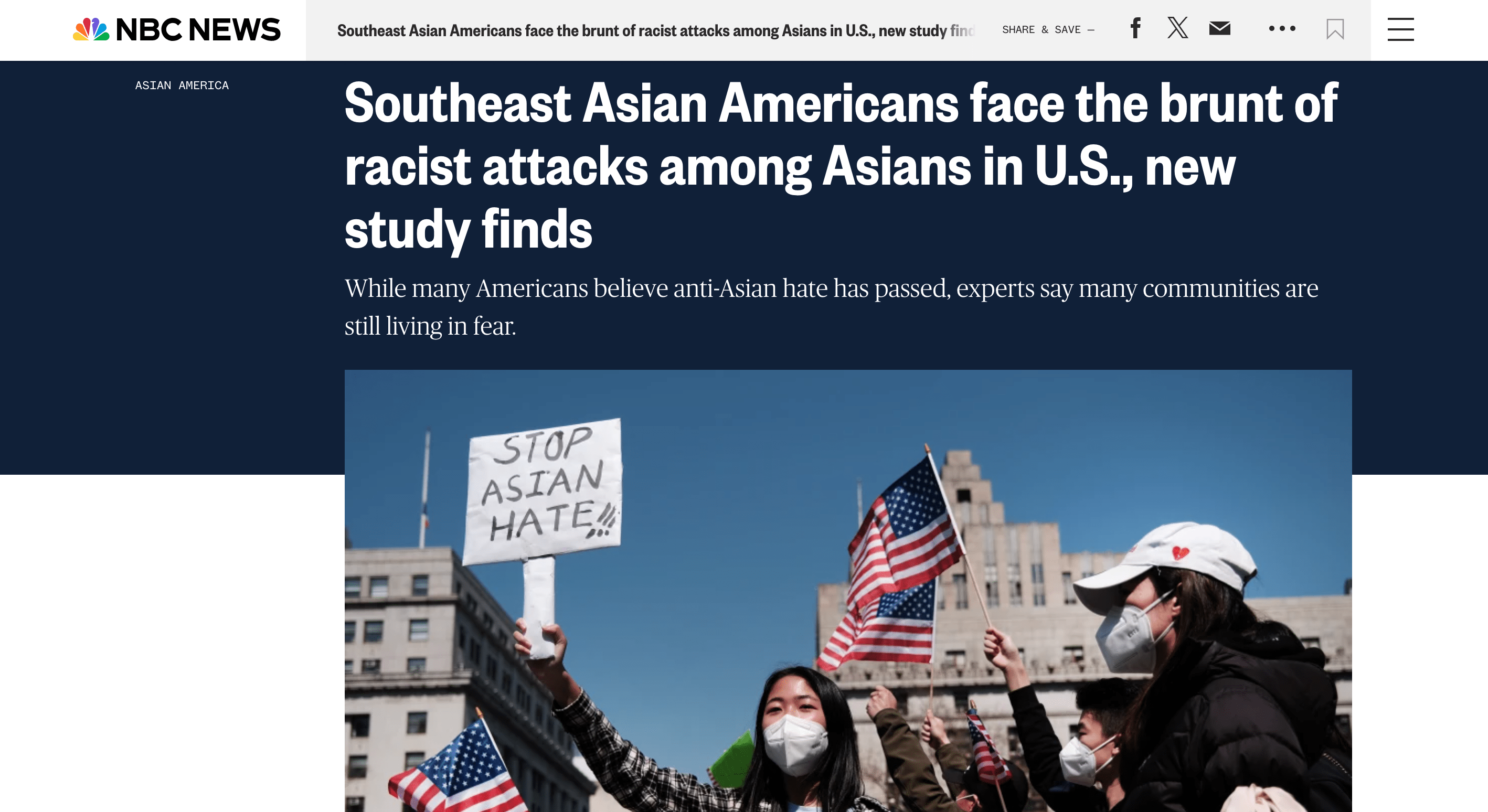
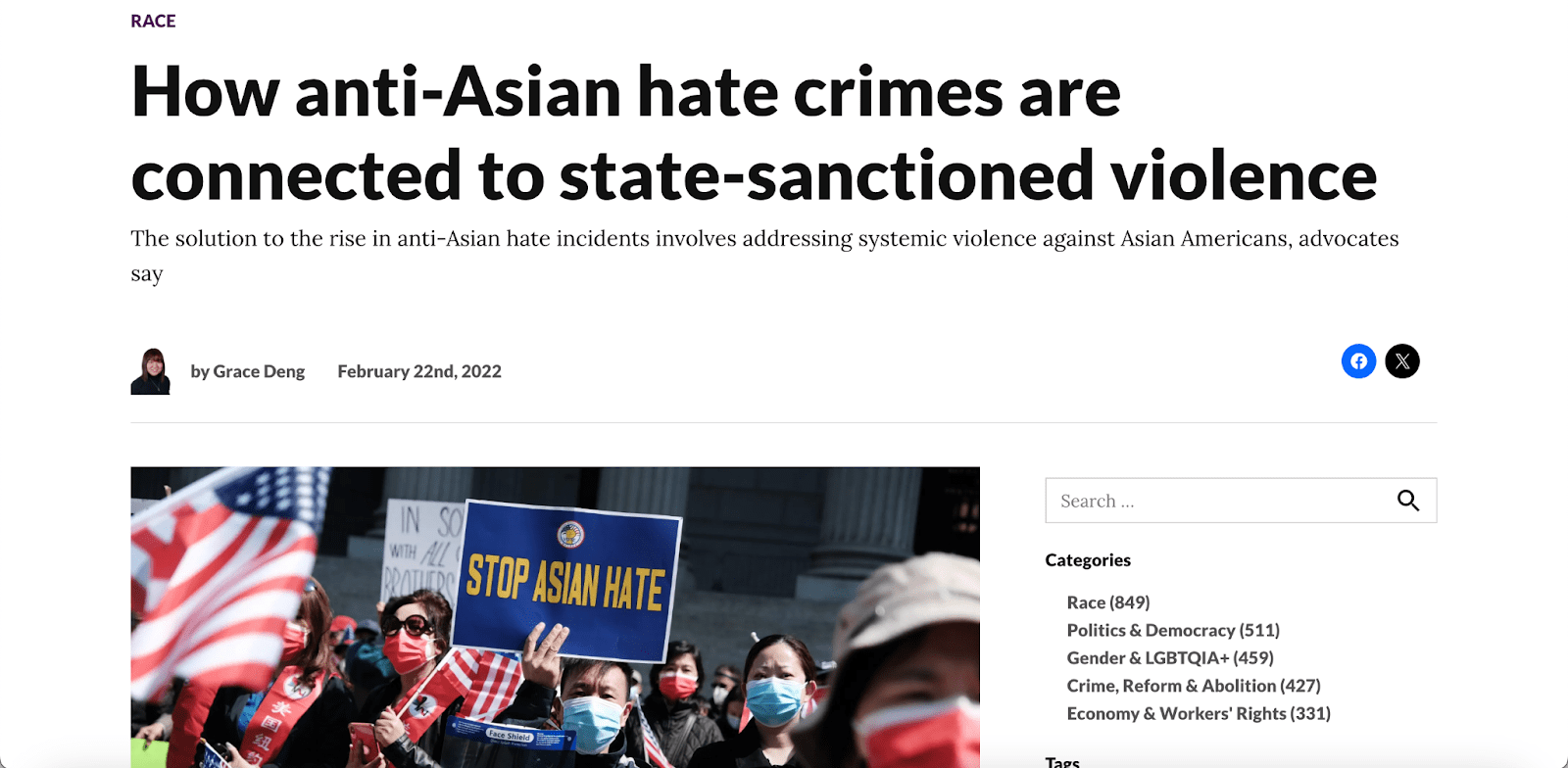
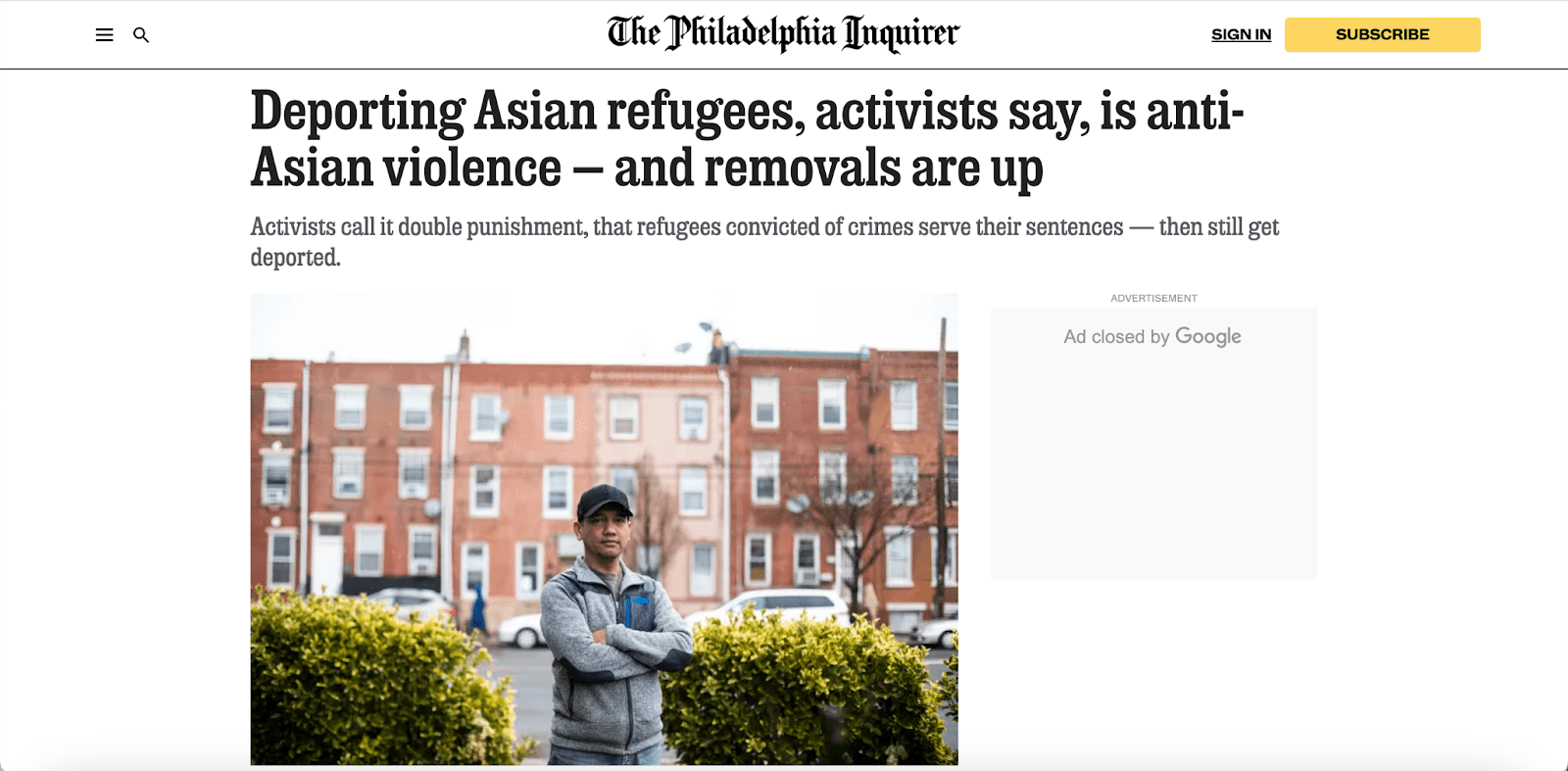
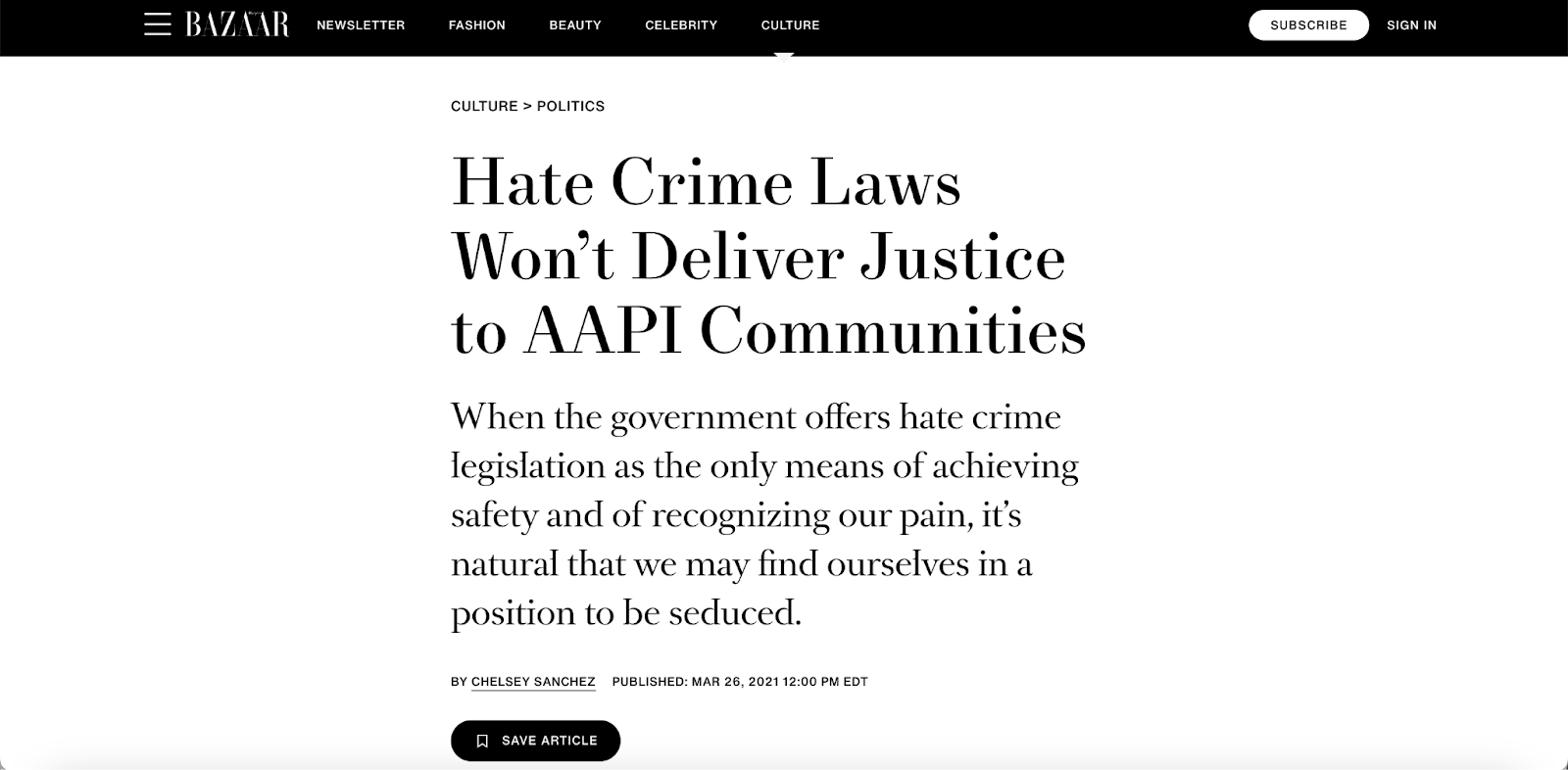
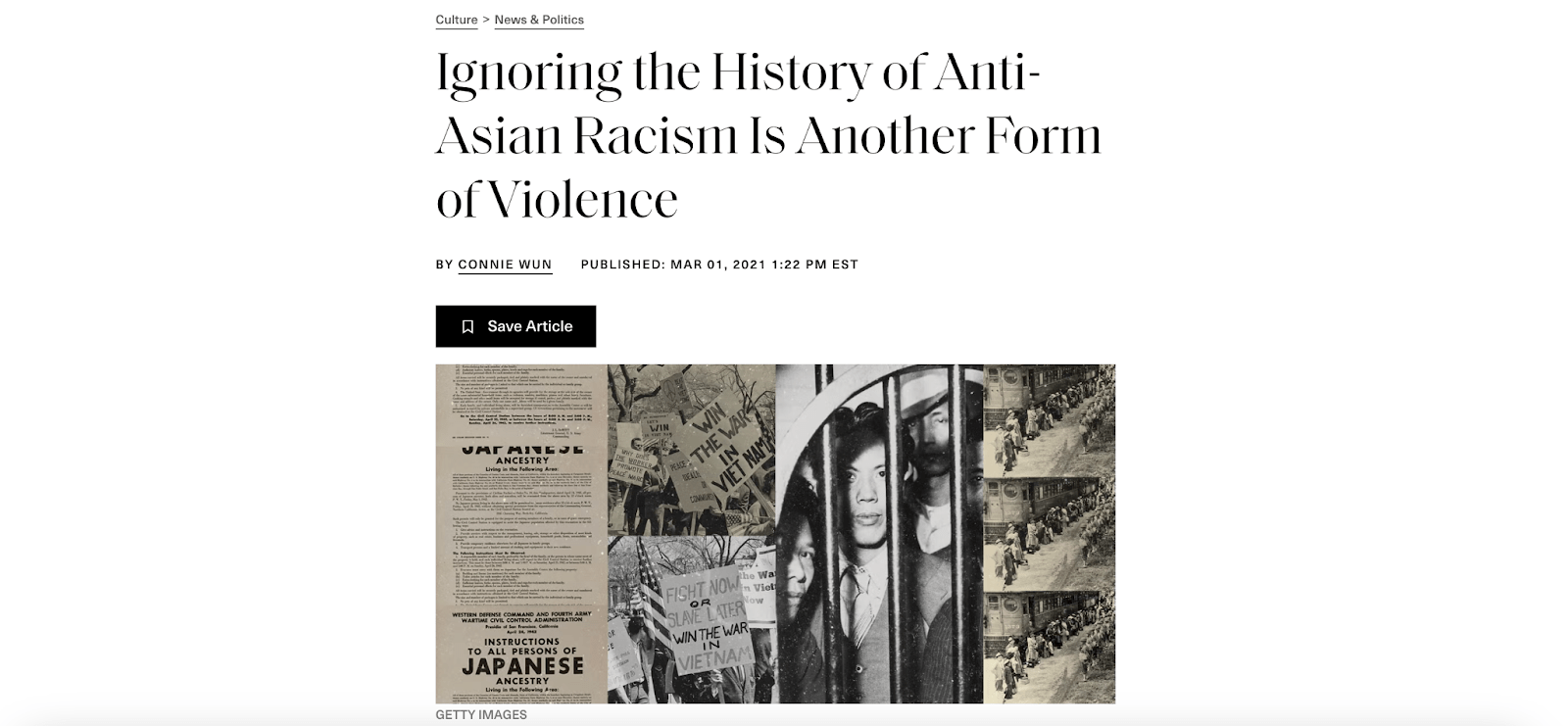
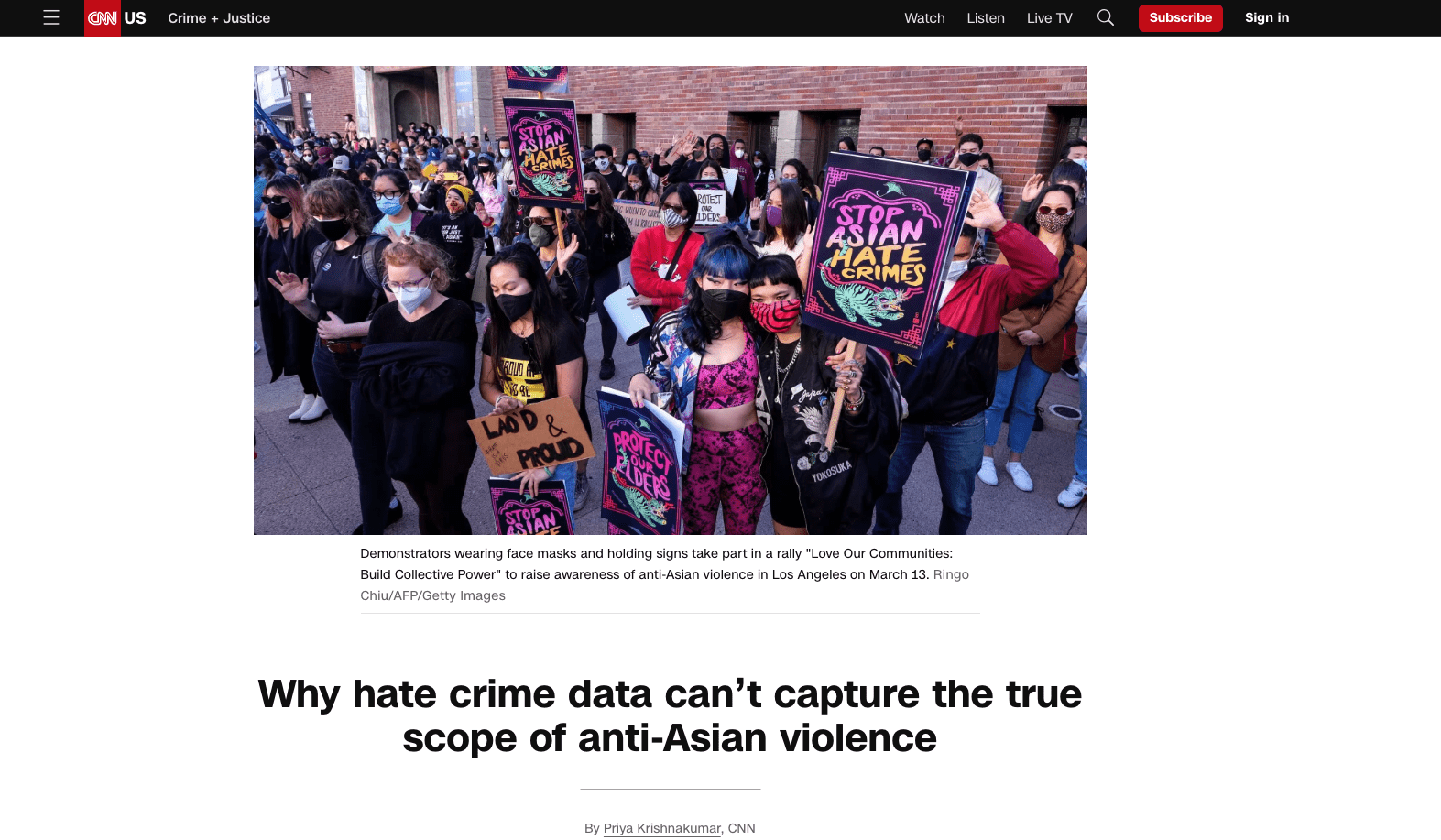
Organizational Statements
“Our hearts ache from these acts of hate, gun violence, state violence, misogyny, and domestic white terrorism. In the last year, we’ve seen attacks against Asian Americans skyrocket, primarily against Asian women, many of whom work in frontline and service sector industries, and elders. Our elected officials must address the xenophobia and fear-mongering against Asian Americans that have been a constant throughout US history. We demand swift action to uproot racist institutions and systems that continue to target those most vulnerable. For these impacted families and for so many others who’ve suffered harm and trauma, we demand immediate and long-term investment into community-centered solutions for safety and healing.”
“Anti-Asian hate has always existed in the U.S. and not confined to individuals but built into the fabric of American society. From the Chinese Exclusion Act of 1882 to the Japanese American internment to the Trump administration’s weaponizing the COVID pandemic against Asian Americans, U.S. history is littered with deliberate acts by the government against Asian people. This has been perpetuated through federal and state policies such as lack of language access to government services, inadequate services and protections for Asian American communities, and the lack of data and disaggregated data collection needed in order to understand the nature and scale of the problems we face. As a result, Asian Americans are treated as foreigners or the invisible minority.”
“In Georgia, as in many states across the country, systemic disinvestment from and criminalization of communities of color means that we do not have the infrastructure or resources in place for effective community safety, a robust social service safety net, and in-language support. In addition, white supremacy devalues the lives and experiences of immigrant communities, Black communities, and other communities of color while heightening xenophobia and divisions among us. At a time where we could be building bridges of understanding and support, white supremacy continues to diminish our already fractured society. During this time of crisis for our AAPI community, we call on our local and state government to provide robust and responsive crisis intervention resources, including in-language support for mental health, legal, employment, and immigration services. It is time for Georgia to invest in transformative justice that begins with cross racial dialogue and community-building that address the root causes of violence and hate.”
“At this moment in time, with the growing xenophobic and anti-Asian violence shaping our current climate, we stand in solidarity and support our Asian communities. We stand against a US government official’s continued depiction of the global pandemic as the “Chinese coronavirus.” We know that this will fuel violence against our Asian communities. We stand in solidarity against this and believe this to be a form of state violence. Knowing that xenophobia is directly connected to white nationalism, we continue to fight against the violence at the borders, through ICE, immigrant prisons (also known as detention centers), and beyond because we work to keep our families and communities together. We know that these policies are directly impacting our Latinx and Black communities as well as other immigrant communities. We stand against this violence. We collectively stand against the violent histories of anti-Blackness and anti-Indigenous policies and practices that continue to shape the United States, and its institutions including the criminal legal system. We are against criminalizing our communities because we know this is and enables only more violence against our communities to continue.”
SEAA-led Community Conversations
SEAA Identity, Solidarity, Resilience (5/20/2021)
Speakers: Ay Saechao (Southeast Asian American Education Coalition and Student Support and Funding Services at Highline College), Lisa lab Yang (Freedom Inc.), Dr. Nhan Thanh Ngo (Vietnam Agent Orange Relief & Responsibility Campaign, Mekong NYC, and Southeast Asian Defense Project), Sarath Suong (Southeast Asian Freedom Network), Sun Bujri (SEAC Village).
Addressing Anti-Asian Violence During COVID-19 and Beyond: Wisconsin SEA Feminist Perspective
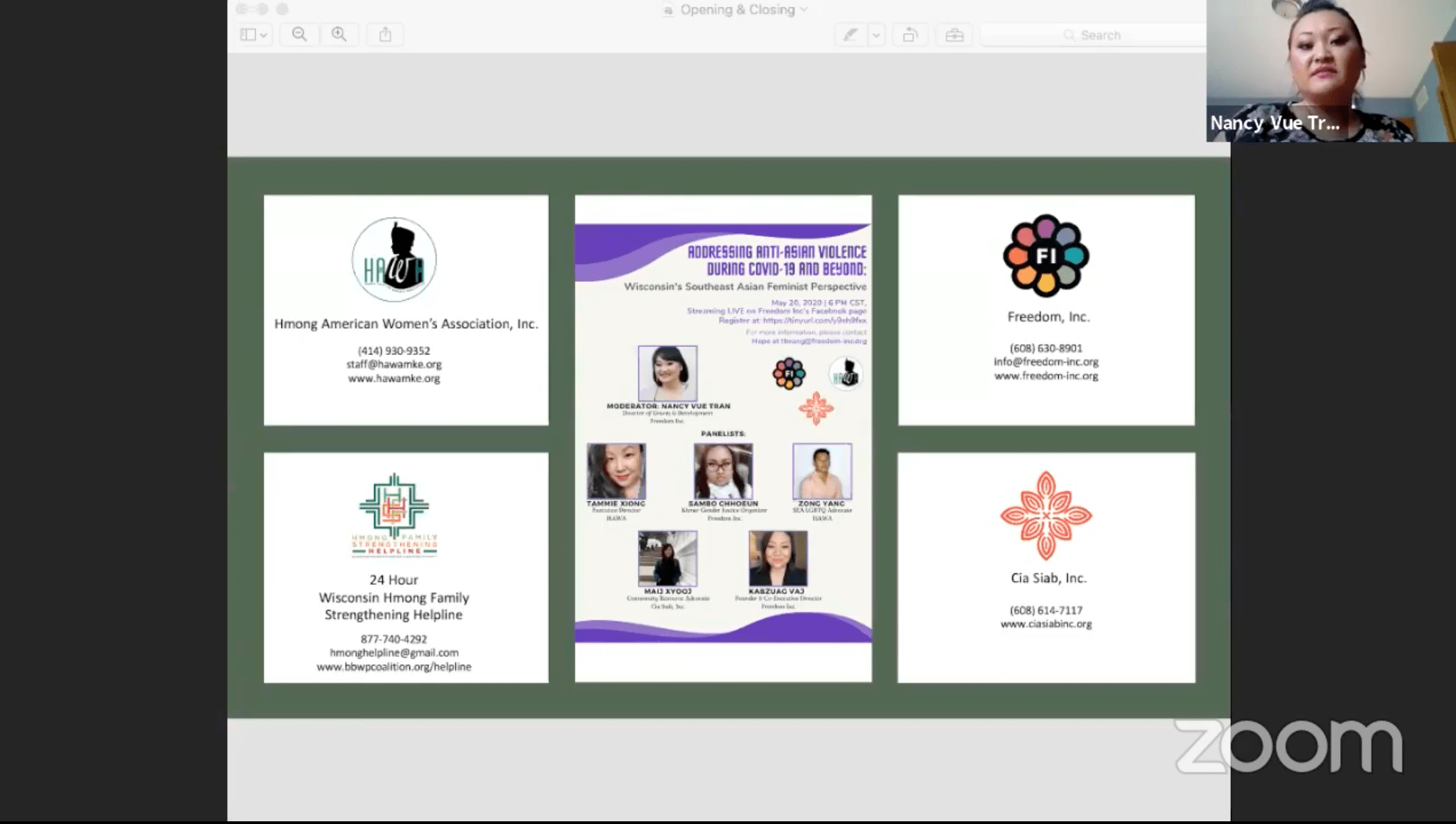
Unheard Stories: Asian Americans Experiencing Hate (3/24/2021)
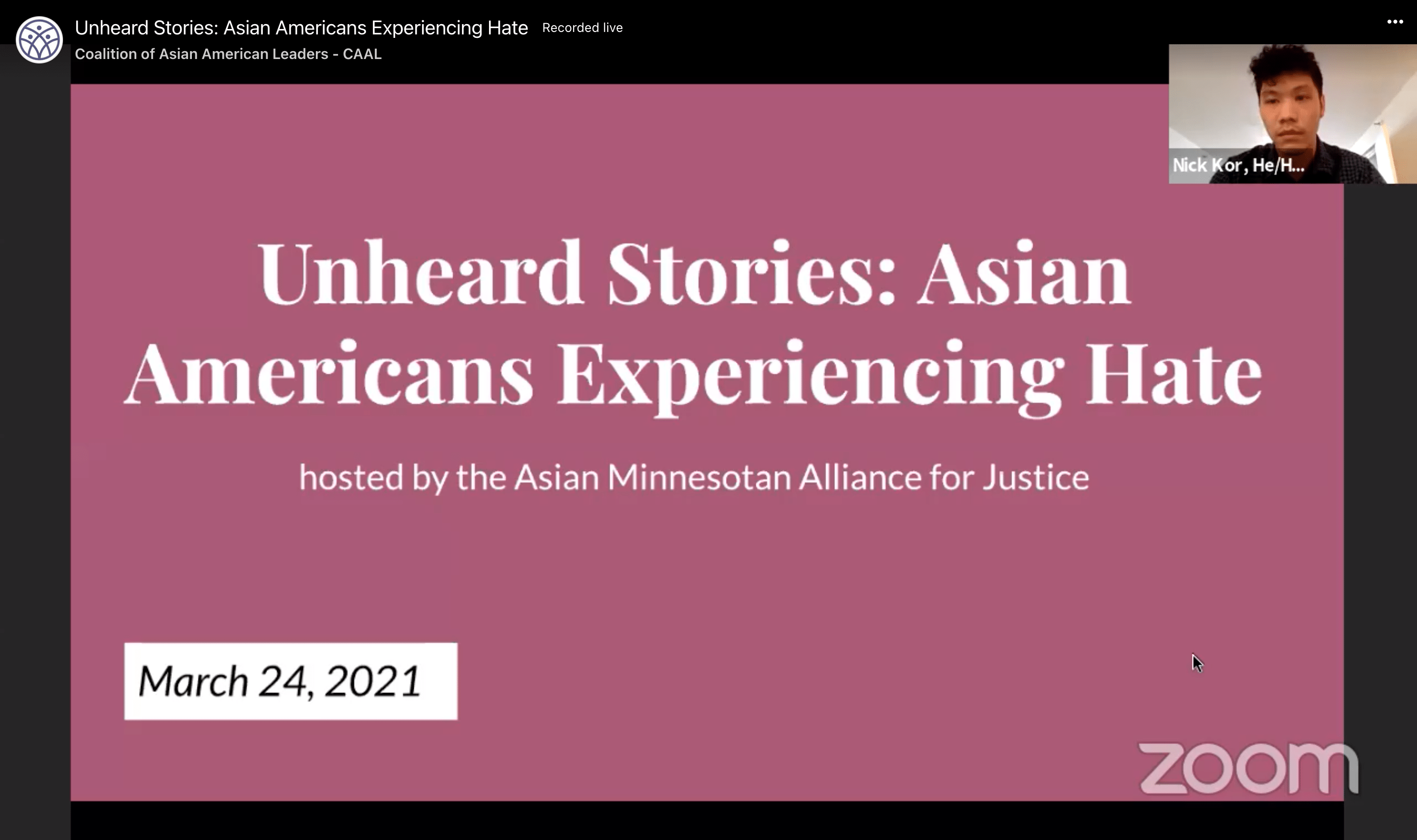
Speakers: U.S. Rep. Ilhan Omar, MDHR Commissioner Rebecca Lucero, CAAL Network & Executive Director Bo Thao-Urabe, and others.
In-Language Resources
Deportation is anti-Asian violence. Hmong American mothers speak out.
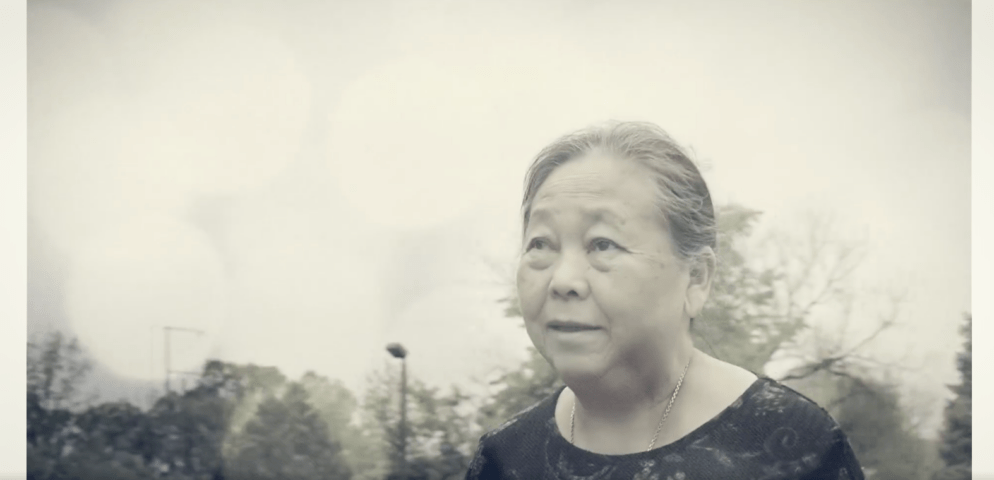
Vietnamese conversation addressing COVID, anti-Asian hate, community responses and reflections upon the recent events in Atlanta, and possibilities for transformative cross-racial solidarity.
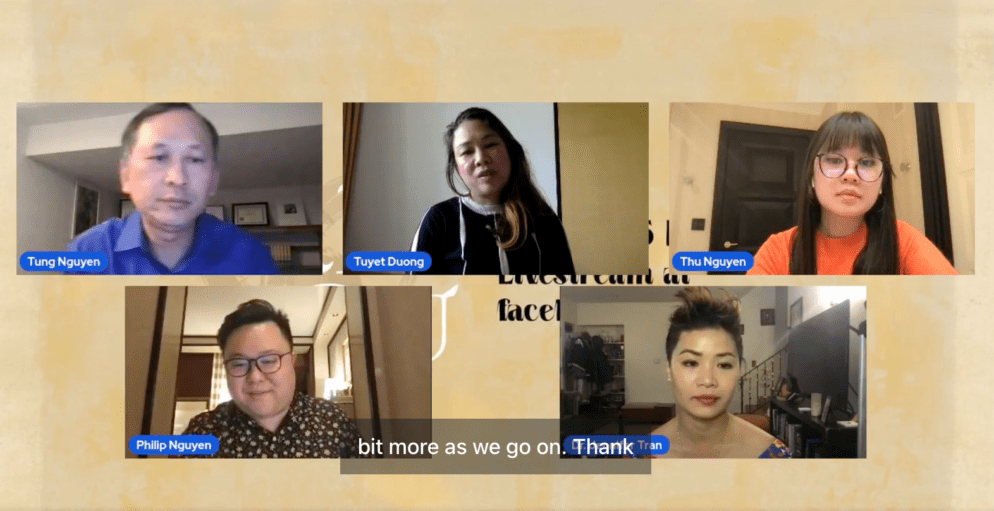
Lessons from History
Policing Won’t Stop Anti-Asian Violence—Solidarity Will
“At first, the organization focused on what many community members found most enraging: police brutality. In 1986, it joined protests led by Black communities against the police mishandling of Michael Griffith’s murder in New York City’s Howard Beach neighborhood. In 1987, when New York City police beat and arrested the Wong and Woo families in their Chinatown home, CAAAV helped get charges dropped on the families, packing courtrooms and demonstrating outside the precinct. Ensuing cases followed the same pattern: Police arrested the people they victimized, and CAAAV worked for their release. When police killed Asian people, CAAAV endeavored to make sure the cops were convicted.”
Read more here.
Take Action
Training
- Sign up for a bystander intervention training with Right to Be.
- Learn with Reclamation Ventures offers anti-racism daily courses and workshops for the workplace.
Donate
- The Stop Asian Hate GoFundMe Fundraisers are a collection of different fundraisers across multiple states to support AAPI survivors of violence, purchase personal safety devices for AAPIs, and the general community fund.
- The AAPI Journalists Therapy Relief Fund is an initiative to provide funding for AAPI journalists for mental wellness resources. If you’re an AAPI journalist looking to apply for these funds, fill out this form.
- The Active: Asian American Community Resource/Dono Post has an extensive list of nationwide organizations and fundraisers to support.
- The Asian Americans Journalists Association (AAJA) is a professional journalism nonprofit supporting over 1,600 members; leading the charge in educating Asian and Asian American coverage for newsrooms and supporting AAPI journalists and members of the media. AAJA released a guide on covering the Atlanta shootings, increased presence on social media, amplified news coverage by AAJA members, and held mental wellbeing events for AAPI journalists.
Mental Health
- Find an Asian/Pacific Islander therapist through Asians for Mental Health.
- Pod-mapping: Your pod is made up of the people that you would call on if violence, harm or abuse happened to you; or the people that you would call on if you wanted support in taking accountability for violence, harm or abuse that you’ve done; or if you witnessed violence or if someone you care about was being violent or being abused. Create a pod-map with the Bay Area Transformative Justice Collective.
